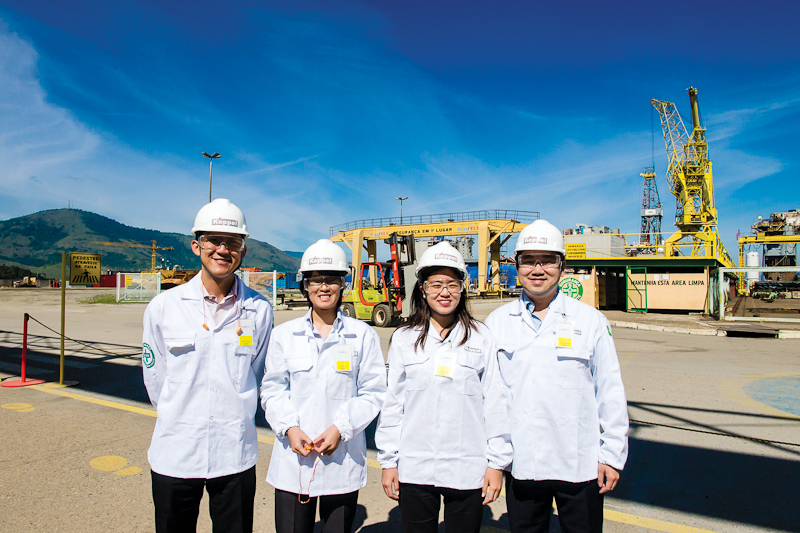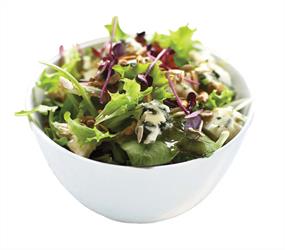Emerging Markets Trade Missionaries

Dr. Francis Chong is a Man on a Mission.
He heads a 15-strong team from the Ministry of Trade and Industry’s Emerging Markets division (EMD) that is charged to develop and establish Singapore’s trade negotiations, agreements and policies relating to the world’s emerging markets.
To achieve that, they first have to sell their own countrymen (and women) the idea of trading with “exotic” places. Think Africa, the Middle East, Latin America, and South and Central Asia.
It is no easy task: in recent surveys conducted by the team on students’ impressions of these places, it was clear that plenty of stereotypes still existed.
Latin America is perceived as a blown-up war zone in the grip of the mafia and drug cartels; Africa is the dark continent of poverty and disease, plagued by “blood diamond” scandals.
Dr Chong is adamant that such attitudes and outlooks need to change. For the record, Singapore has sizeable oil, gas and education business ties in Kazakhstan and the people there are definitely not Borats.
So to fight these stereotypes and help Singaporeans better understand the potential returns of emerging markets, EMD officers make frequent study trips to collate ground data and information about the countries.
According to EMD, Singapore’s total trade with emerging markets, excluding China and Southeast Asia, doubled from S$106 billion in 2007 to S$213 billion in 2011.
Also compare the European Union’s exports to emerging markets such as Russia, Central Asia, Turkey, India, Brazil and the United Arab Emirates, of US$366 billion (approximately S$465 billion), with Singapore’s mere S$30.5 billion in 2011 – a clear indicator of the massive trade potential that could be realised.
“Besides, why restrict yourself to what you already know? In developed markets, you enter as a small fish in a big pond, with lots of sharks; in emerging markets, there are still sharks but you might be a bigger fish,” Dr Chong adds.
Given that growth in the G3 economies (the US, Europe and Japan) is slowing down, it makes even more sense to diversify Singapore’s portfolio by seeking opportunities elsewhere, to “rejig the system”, as he puts it.
His deputy Kelvin Tan agrees: “The US will not always dominate, and China may not always be there to sustain our growth. We need a competitive edge.”
Developing a global imagination
Currently, EMD is talking to different ministries and studying existing mechanisms and policies across government sectors, so as to develop a comprehensive framework for promoting emerging markets.
Their overriding goal? To stimulate the “global imagination” of Singaporeans; that is, the ability to understand, accept and adapt to the cultural and business practices of different countries. Only with that extra edge can Singapore and Singaporeans excel in this globalised age, explains Mr Tan.
And this, EMD believes, can be achieved by targeting the young. The team hopes that all Singapore schools will be eventually twinned with foreign ones – including those from emerging markets – to pique our students’ curiosity about other cultures.



So far EMD has conducted pilot projects, such as art competitions, and supported students’ overseas community service projects by providing contacts or facilitating tie-ups for post-trip events.
The bulk of their outreach opportunities, however, comes from building on existing events. For example, when world-renowned Lebanese composer and oud player, and UNESCO Artist for Peace, Marcel Khalife, visited Singapore in May 2011 for a concert as part of a Middle East symposium, EMD invited him to conduct an oud masterclass for students from the School of the Arts.
The event yielded wonderful memories for all involved, and a relationship was established. That’s how future trade partnerships are born, says Dr Chong, whose team’s work includes building relationships through social media.
Working by faith
Yet, the effects of these outreach methods may only be perceptible in time, and Dr Chong is realistic about the outcomes: “Do we know that whatever we’re doing will work? We don’t. But the only 100% guarantee is that if you don’t do anything, nothing will change.”
His “never say die” attitude seems to have rubbed off on his EMD officers, who relish the unpredictable nature of their work as a constant source of excitement.

Assistant Director Joanna Tan who oversees the Africa portfolio, recalls how terrified she was upon learning that she was going on a trip to South Africa and Angola, just weeks into her first job after graduation.
Four years on, her passport is filled with immigration stamps from Libya to Zanzibar, and she is now more than ready to hop onto a plane at the word “go”.
She recalls: “We were in Ghana and suddenly we had a phone call, saying that the King of the Ashanti tribe wanted to meet us. We went to his Kingdom and all of a sudden, these tribal chiefs, in royal regalia – some on sedan chairs– began arriving. It was surreal.”
Freezing trips to pristine Siberia, feasting on camel meat in Saudi Arabia and visiting sites of biblical proportions in Petra are just some of the epic adventures that these officers have lived to tell.
But lest one begins to think that a day in the life of an EMD officer is all about flying to exotic places, be warned: these trips can be highly pressurising, with notes to prepare for ministerial staff, conferences to attend and projects to lobby for – on top of making post-trip reports and economic assessments.
Ultimately, Dr Chong and his team hope that all their hard work, experiments and outreach programmes will lead to fruition.
They are a zealous bunch, always ready to go forth, as if instructed by higher orders to explore the unchartered territories and later return to convert the uninitiated, despite the odds. They are the modern trade missionaries.
If you have any ideas or suggestions to share, please contact Dr Chong at Francis_CHONG@mti.gov.sg.



- POSTED ON
Sep 18, 2012
- TEXT BY
Ryandall Lim
- PHOTOS BY
Justin Loh









